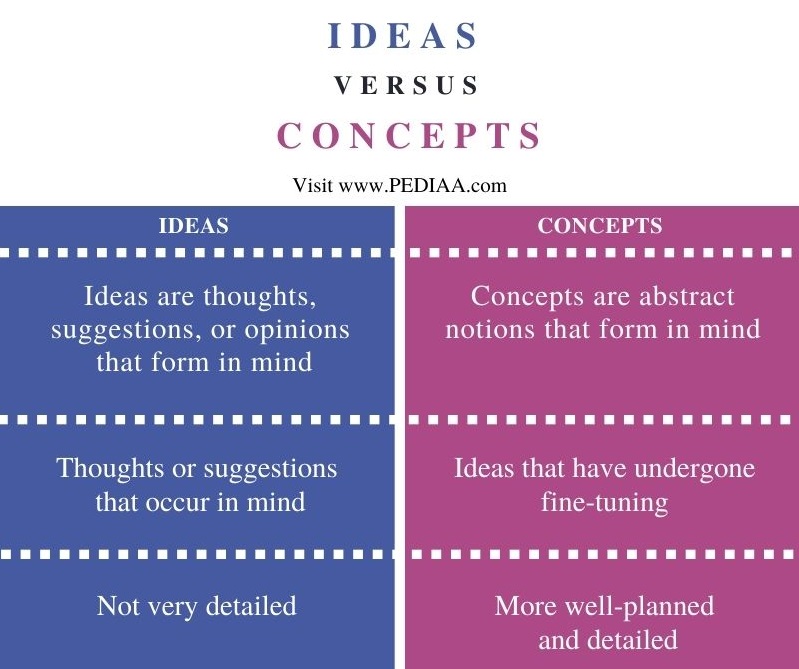Good business ideas alone won’t guarantee a company’s success. If you ever want your firm to take off, you must have a clear business concept.
Have a brilliant new idea?
Starting immediately based just on a concept is dangerous. Ideas alone do not constitute a business; rather, concepts and strategies with clear objectives do. Instead, focus on developing your concepts so that you can include them in your company plan.
What do you mean by a business concept?
A notion might be considered to be a clearly defined idea that has undergone verification of its veracity. A business concept is a plan for a firm that includes details about the service or product, the target market, and a distinctive value proposition that provides the organisation with an edge over rivals. There is a big difference between an idea and a concept when it comes to enterprises.
Difference between Idea and Concept
Read differences between Ideas and Concepts with Pritish Kumar Halder.

A “mental construct” of business potential or opportunity that you come up with is what is referred to as an idea. An idea may be seen as a version of a notion that has undergone refinement and is less inconsistent. A business concept is often one or two statements that sum up your products or service.
How to convert your Idea into a Concept?
The first stage is to elaborate on your concept by performing the following actions in addition to responding to the typical inquiries, such as “What is your offering?” and “What does your product/service do?
-
Identify Your Target Market
Discover the market sector that the company can serve. Determine who your target market is. To whom and where you want to sell your goods and services will determine where to focus your marketing efforts. Ensure the below-mentioned factors while locating and identifying your target market:
- Evaluate Your Client Base: If your company is already established, gathering and analyzing customer data is the greatest approach to identify your target market.
-
Determine Your Competitors: Unless your concept is groundbreaking or a game-changer, there will already be companies operating in the same industry as yours. As soon as you can, identify your rivals and their marketing strategies.
-
Assess the clientele of your competitors: Consider your rivals’ target market while analyzing their client base. Where are their items sold?
-
Market recognition
Once you have identified your target market and audience, it’s essential to do a quick analysis of the market feasibility of your company concept.
It’s a method of figuring out whether your target consumers will be interested in your company concept, to put it simply. You will have a deeper grasp of the target market’s needs as a result.

-
Discover Your Idea’s Value Proposition
Make a value proposition that is based on your company. Keep in mind who your target market is. Your value proposition must place more emphasis on the advantages that your concept provides than on its components. By doing this, you’ll be able to develop your concept and bring everything together to create your business concept.
-
Better It Up
If you can’t take your criticism and put it to the test for yourself, it doesn’t matter that you started with an idea and developed a concept from it. Until there is nothing left, keep trying to improve it.
Pritish Kumar Halder’s theory on ideas and concepts
Pritish Kumar Halder also known as Pk Halder has gained recognition due to his immense dedication towards learning new things about the sector. Pritish K Halder has always believed in expanding to the latest with being rooted in where he started. In his twenty-two professional years, all he received was the knowledge of ideas and generosity towards concepts.





